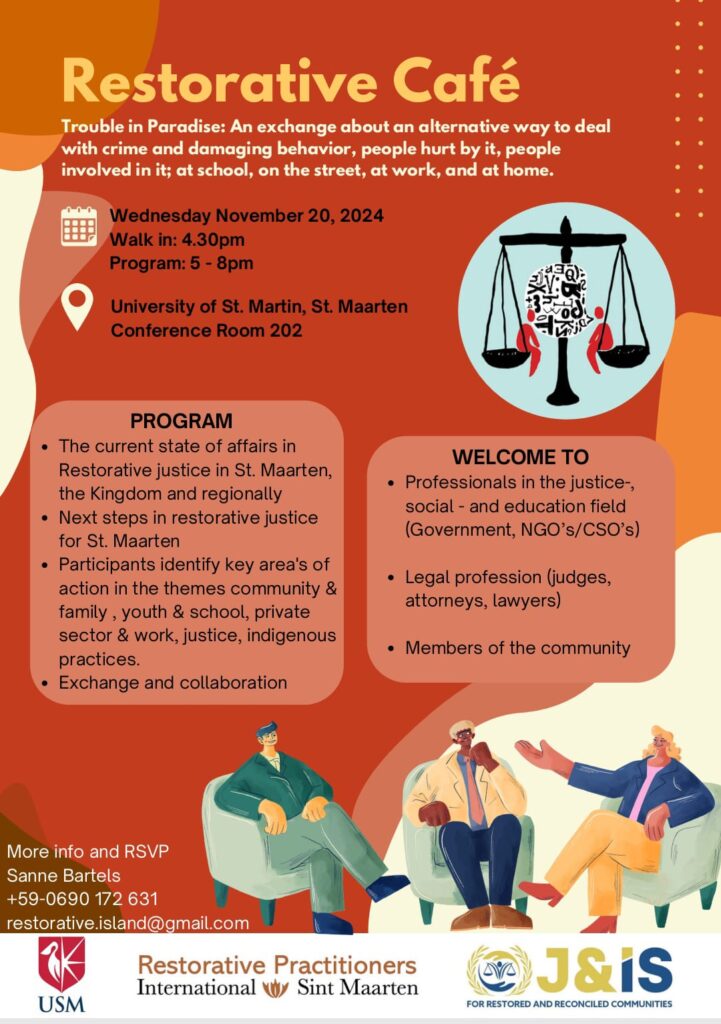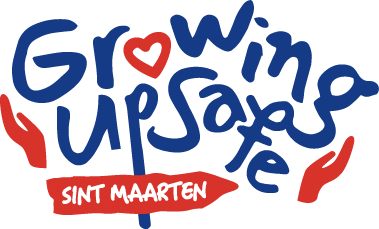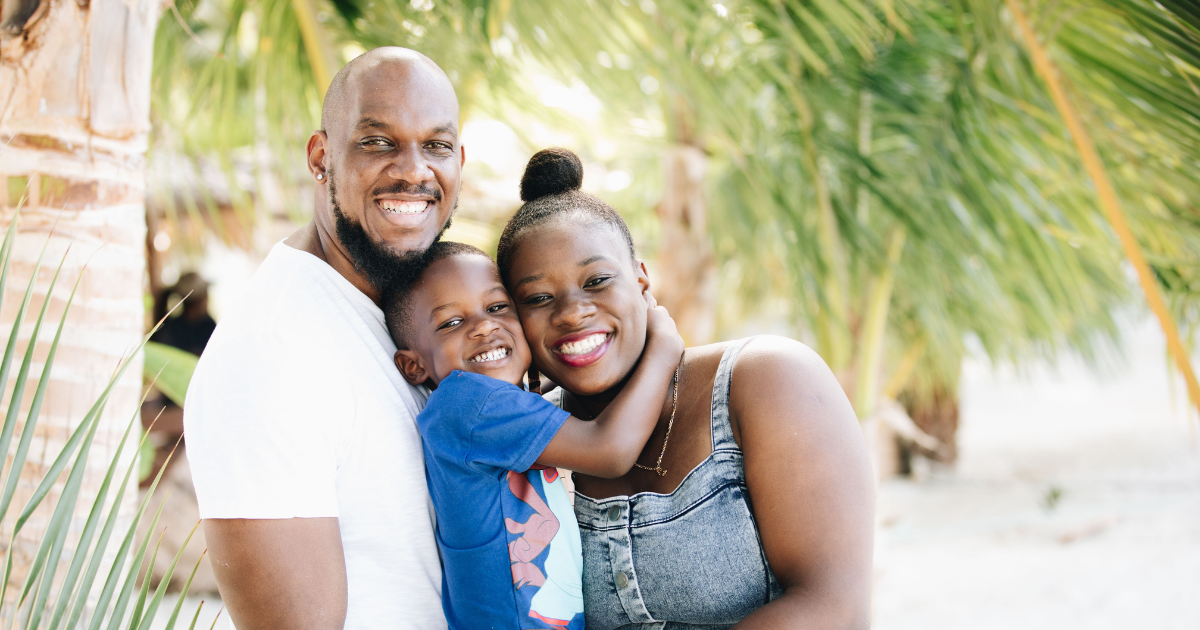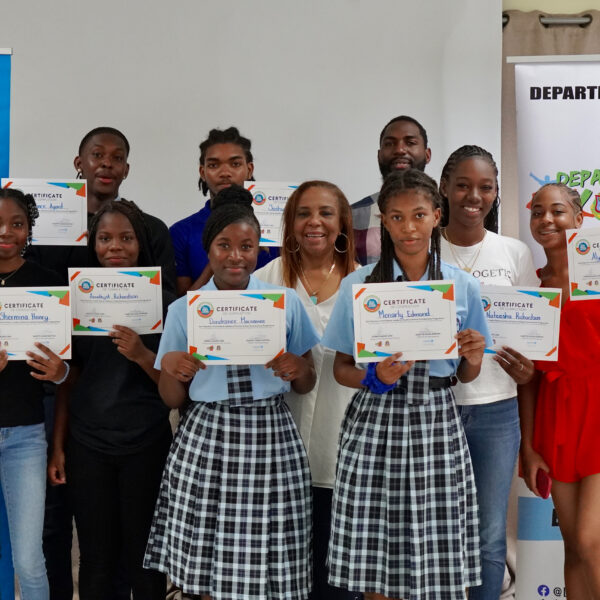“By focusing on healing and accountability, we create safer environments for children.”
When someone is convicted of a crime, it impacts the entire family. Unlike the traditional justice system, which focuses primarily on punishment, restorative justice provides a space for victims and offenders to understand and address the emotional and social consequences of their actions. This can help families heal and rebuild.
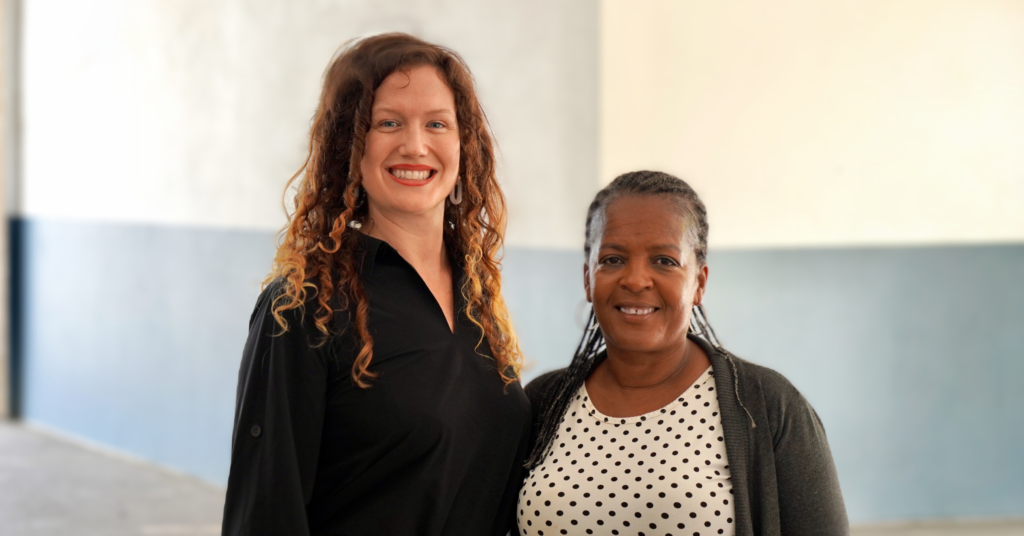
At the heart of this initiative are Cynthia Filemon, Acting Director of Judicial and Institutional Services (JIS) (formerly known as SJIS), and Sanne Bartels, a Mediator and Expert on Restorative Justice and co-founder of Restorative Practitioners International. They are working with JIS and the Prosecutor’s Office (OM) to bring this human-centred approach to the island’s justice system, implementing restorative justice practices focusing on mediation, healing, and rehabilitation.
“Restorative justice offers a space for those who have caused harm and those who were harmed to express their needs, repair harm, and establish an understanding with each other. This is particularly important for families and children, who often bear the brunt of conflict,” explains Sanne Bartels. “By focusing on healing and accountability, we create safer environments for children.” In this interview, Cynthia and Sanne share their experiences and insights into how restorative justice improves family dynamics and can bring closure and peace to those involved.
What is restorative justice?
Restorative justice is about repairing harm. In traditional justice, we focus on punishing offenders. However, restorative justice emphasises addressing the emotional and physical harm caused by a crime or surrounding circumstance. It provides a platform, such as a mediation session, for victims and offenders to participate in a dialogue where they take accountability and come to an understanding. They do this voluntarily, so only if both parties want to participate. This process allows both parties to express their feelings, needs, and regrets, which can help repair or strengthen relationships.
Restorative justice is not about replacing traditional justice but about complementing it. It offers flexibility and focuses on the victim’s human experience and emotional needs, which are often overlooked in the court system. In addition to supporting the victim’s healing process, it also provides support for the offender’s rehabilitation. It requires those causing harm to take responsibility for their actions and the harm they have caused. A support system, like family and friends, plays a significant role in ensuring that offenders successfully reintegrate into society.
What is mediation?
Mediation is a process in which a mediator, a multi-partial party, helps people in conflict communicate and negotiate to reach agreements about repairing the harm and, potentially, for the future. It’s commonly used to resolve disputes without going to court, whether in family, business, or civil contexts. The mediator doesn’t make decisions but guides the conversation to help both parties find common ground.
We formally began the restorative justice project in 2021. Before that, mediation in criminal cases hadn’t been done here. We receive referrals from the police and prosecutors to see if the case is suitable for mediation before it goes to trial. In these situations, we facilitate dialogue between the victim and the offender to see if they can reach an understanding regarding the harmful event and any ideas they may have regarding repair or future punishment. This is written in an agreement and shared with the Prosecutor and/or Judge so that they can take this into account in their decision-making about the case. However, mediation can also help after an offender has been convicted, for example, if they wish to make amends. JIS deals with many cases, especially involving relational violence, like domestic violence. Mediation can be very beneficial in these cases, as there is a lot of emotional collateral.
How does restorative justice impact children involved in such cases?
By facilitating mediation, we create a space where parents can explore the (violent) dynamics they are caught in. By creating an understanding of their dynamic, parents can now start to change their behaviour and often prevent further conflict. Together with the parents or other caregivers, we aim to create a peaceful environment that positively impacts the children. When conflict is reduced in a household, children are calmer, sleep better, and experience less stress because their parents are no longer in constant conflict. Additionally, they tend to perform better in school, develop healthier relationships, and exhibit improved emotional regulation, contributing to their overall well-being and stability.
In addition, family, or a strong network, is a crucial part of the rehabilitation process after being convicted that JIS guides people in. For example, we worked with someone in detention who requested mediation with his mother to restore their relationship. This is important for the individual’s rehabilitation when they get out of jail and for their role in the family unit. Many of our clients are parents, and by repairing their relationships, they become better role models for their children, which is essential in preventing future problems.
What challenges and successes have you encountered?
One major challenge is capacity and financial constraints, which are common in small island states. Backlogs can lead to delays, and as the saying goes, “late justice is no justice.” However, we’ve had great successes as well. In 2020, we worked with JIS and the OM to provide mediation training for professionals in the judicial and social domain, working with them to apply restorative justice principles in their daily work.
Looking ahead, our vision is to expand this approach beyond the criminal justice system into areas like schools and community organisations. We’re also in the process of capturing our experiences in a field guide to help other small islands implement similar programmes. Restorative justice is more than just addressing crime—it’s healing, dialogue, and reintegration. We aim to make this approach accessible across Sint Maarten and, eventually, other small island communities. Everyone involved deserves a chance for their voice to be heard and for the harm to be addressed meaningfully.
On Wednesday, the 20th of November, we are hosting our second Restorative Café, a conference by and for restorative-minded professionals and members of the community. You are invited to RSVP via restorative.island@gmail.com.
Follow JIS and their programmes at: www.facebook.com/foundationjisxm
